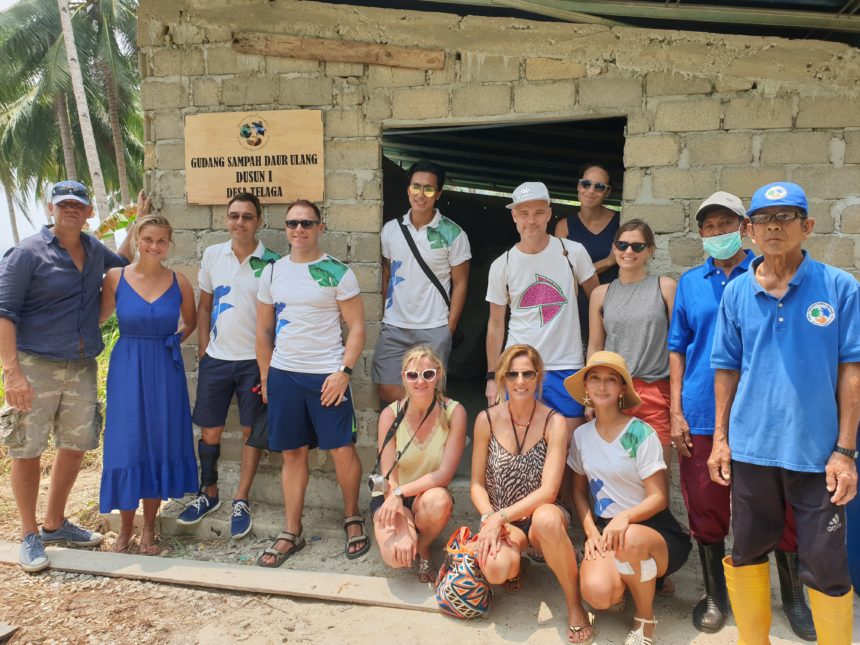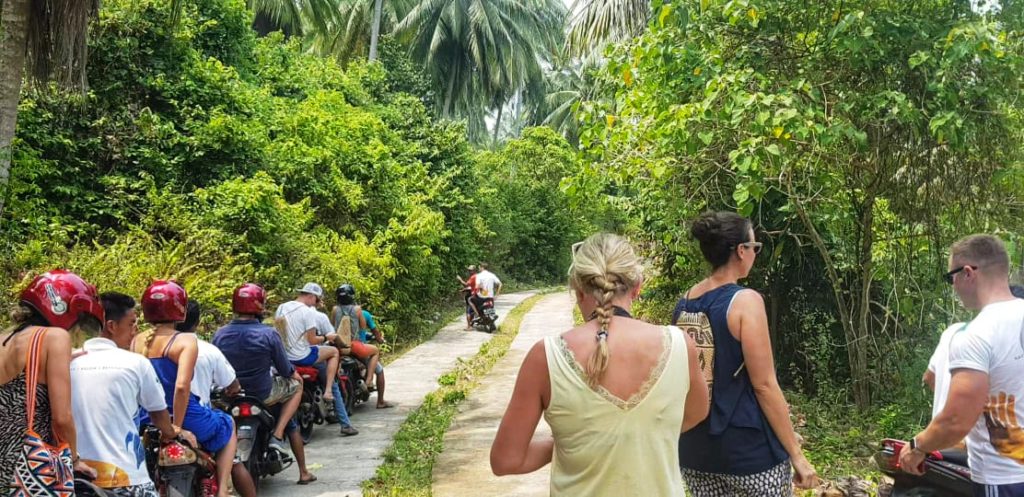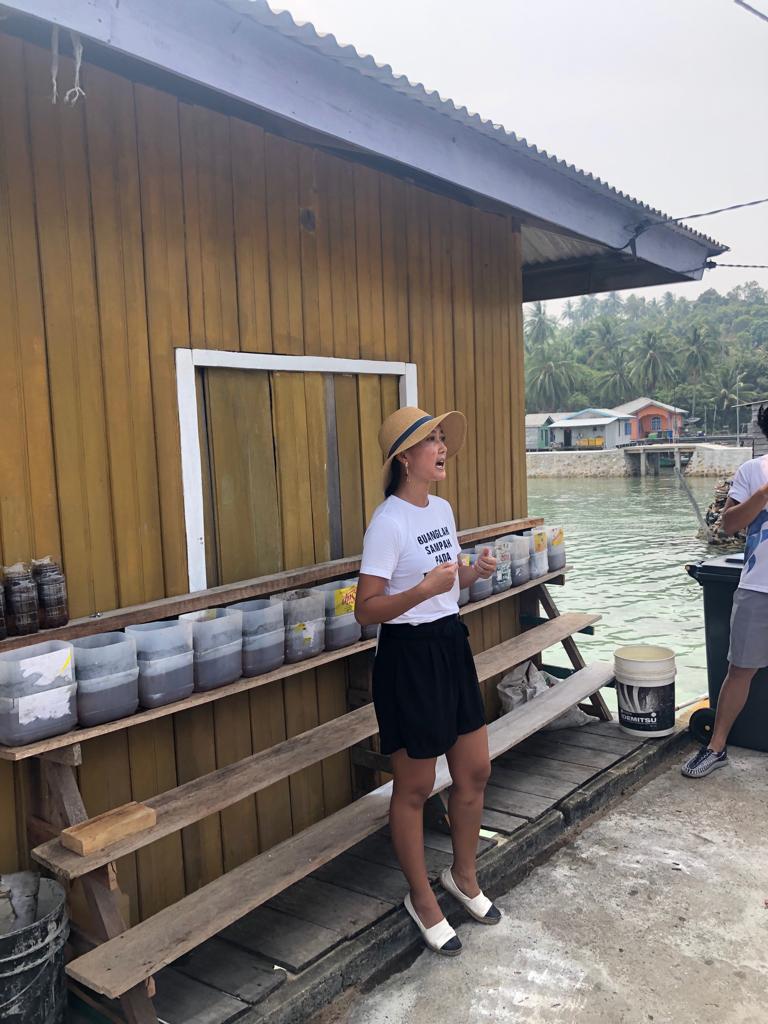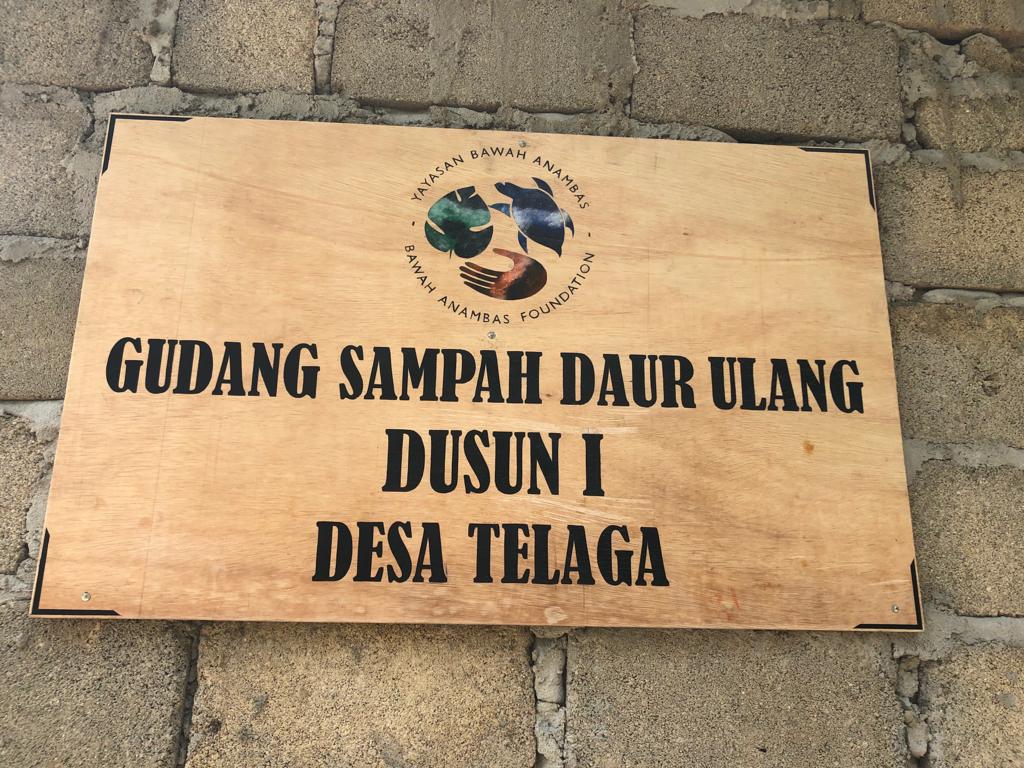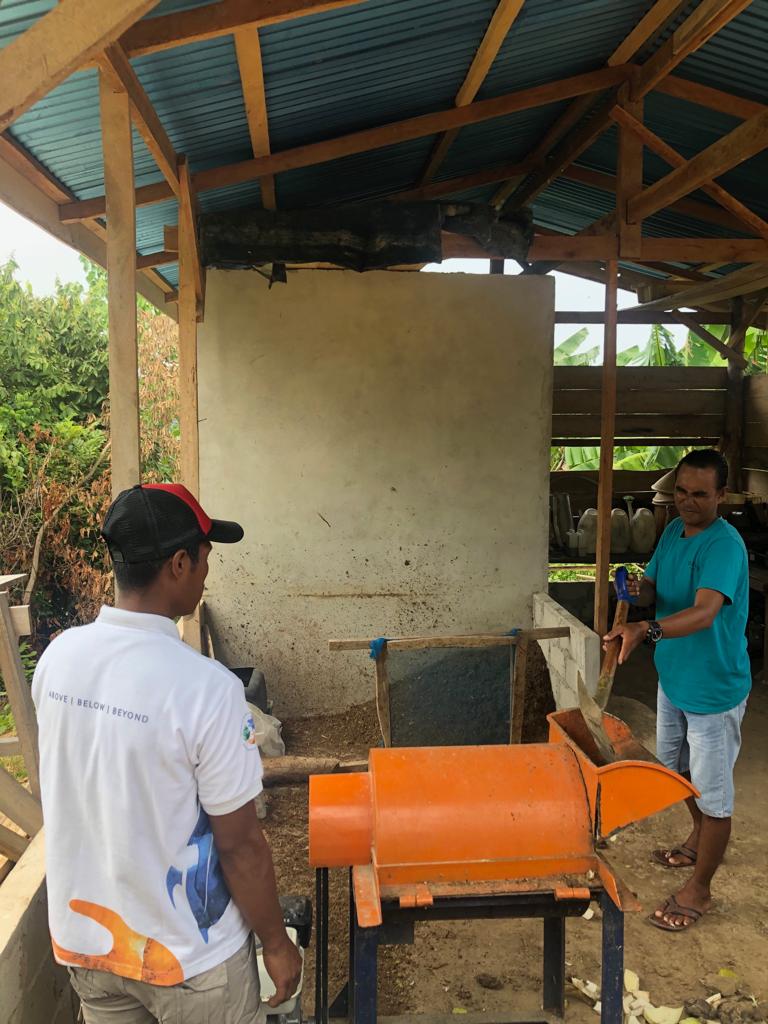Written by: Jon Woodhead
A small group of Bawah Reserve guests, including myself, were offered the opportunity to go and see the work of the Bawah Anambas Foundation (BAF) on nearby Telaga.
We were given a few important facts before we set out. The nearest populated islands to Bawah are Telaga, Mengkait, and Kiabu. These islands are some of the furthest from the capital of the Anambas District. Between 70 and 80 percent of the population rely on fishing, and their average household income is between 150 and 300 US Dollars per month. Decades of unsustainable fishing practices have adversely affected the surrounding ecosystems. Without facilities and awareness, the amount of waste, including plastics, entering the ocean, has reached critical levels. BAF is playing a vital role in supporting the communities on these islands to reduce their reliance on fishing and develop alternative livelihoods as well as providing necessary waste management equipment and knowledge.
As we arrived at the jetty on Telaga, the colourful buildings formed a pretty picture. These buildings now include a permanent base for BAF. This is just a simple set of rooms, but it puts them at the heart of the local community. BAF now has a representative on the island, working amongst the people there, all year round. As we stretched our legs back on land, we were greeted with smiles, waves and genuine warmth.
A short and exhilarating ride on the back of motorbikes took us up to see an example of where BAF has introduced new farming practices. Educating local farmers on the importance of making their own compost and other ways to improve soil conditions has proved vital in developing the right conditions for successful crops.
Another short trip took us through lush vegetation and fields, to find a nursery area brimming with new shoots. Under the watchful gaze of the nursery workers, we were allowed to help out, replanting seedlings and learning how they use the local conditions to their advantage. The cucumbers, eggplant, chilis and other fruit and vegetables grown here by the local communities are organic, fresh and grown with real pride. Bawah Reserve commits to purchase 100 percent of the farmers’ crops at a fair market price. Success and financial security like this is persuading more and more to join the programme.
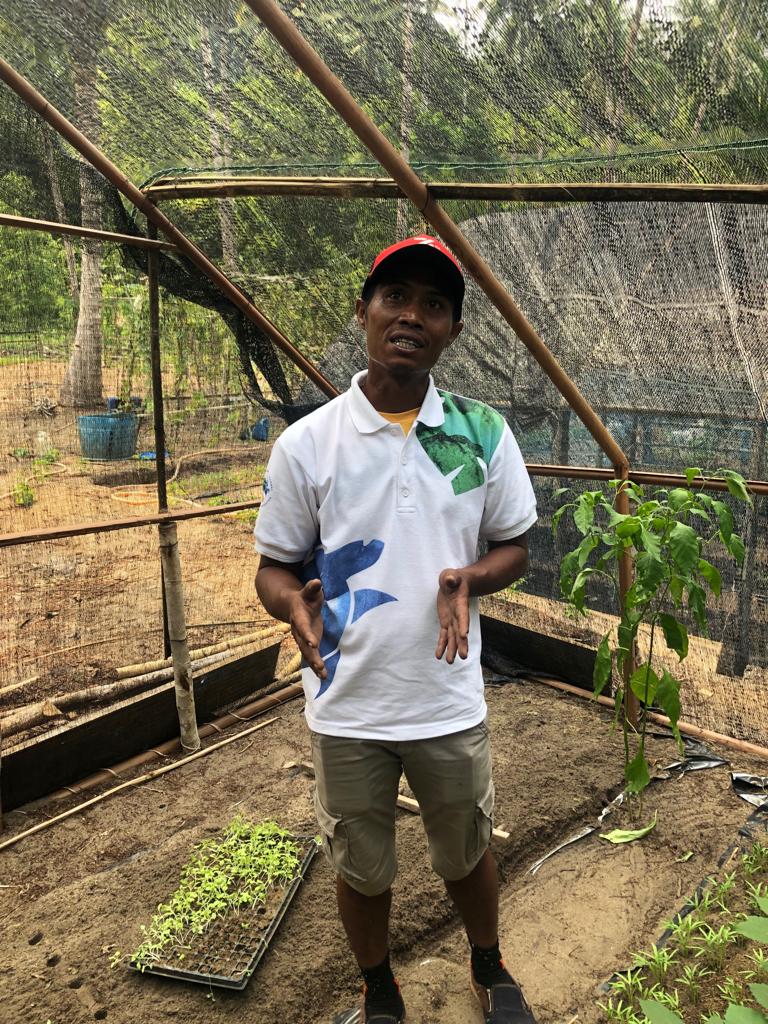
The final BAF programme we visited was a new building to house solid waste collection and sorting facilities. Here we saw different types of waste being sorted for recycling or disposal. Waste management is made more challenging for the local communities by the influx of waste that is washed onto their shores. This includes many types of floating waste, mostly plastic, and abandoned fishing nets known as ghost nets. These nets represent a deadly trap for local wildlife, and must be removed and recycled. Until now, the lack of proper waste storage facilities has meant that in periods of heavy rain, waste can be washed off the islands into the ocean.
Waste collected on Telaga will now be sent to a new facility built by BAF on Kiabu, where new machinery is being put in place to upcycle plastic, glass, used cooking oil and other waste types. These can be transformed into bricks and candles that can be sold to generate more income for local communities.
By this point a small crowd of local children had gathered around us, keen to shake our hands and wish us well. Surrounded by the friendly throng, we were shepherded back to the jetty where local families had laid on an incredible lunch of freshly caught fish and vegetables grown in the surrounding fields. All too soon it was time to get back on the boat and wave goodbye to our new friends. As we arrived back on Bawah Island, it was clear to all of us that BAF is having a genuine impact, improving the lives of local communities and protecting the fragile environment around them.
Jon Woodhead is Director of Challenge Sustainability, an international sustainability advisory firm that provides consultancy services to international companies on sustainability strategy, reporting and communications.
